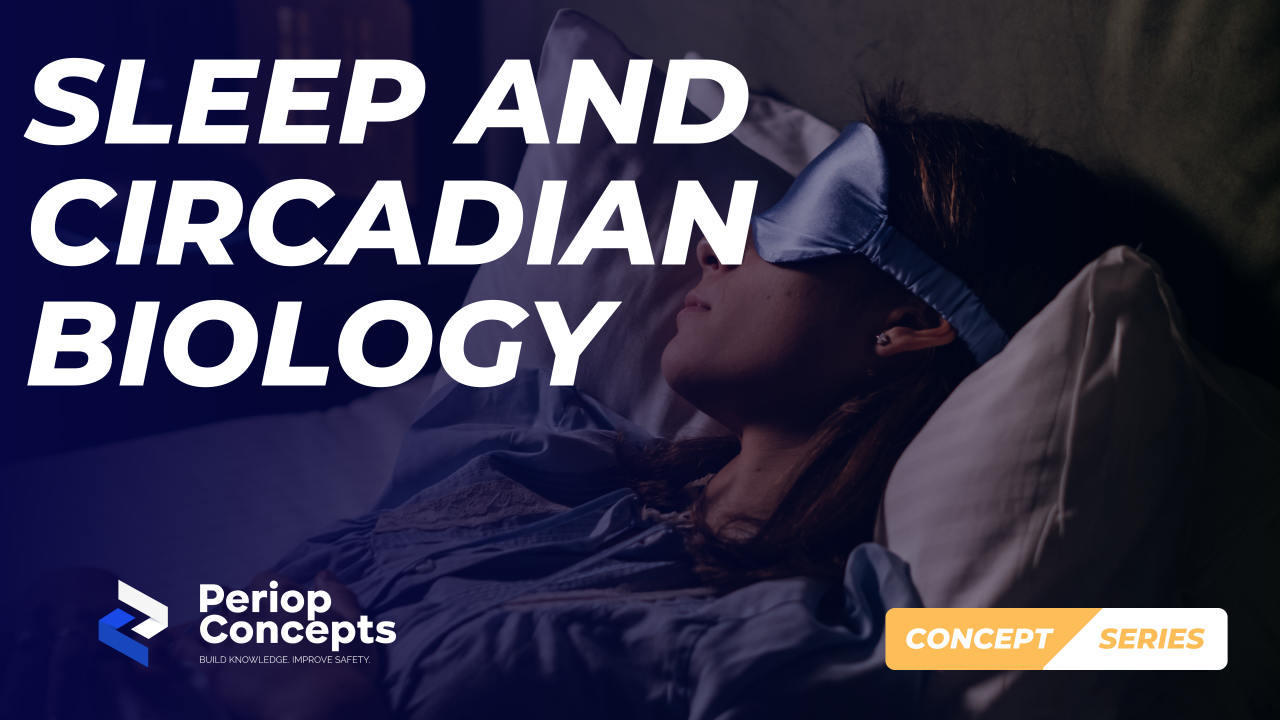Sleep and circadian biology
Sep 08, 2025
Clocking In with Care: Why Sleep and Circadian Health Matter in Perioperative Nursing 🕒💤
Sleep is not just rest - it is a vital biological process that underpins recovery, cognition, and the overall health of our bodies and mind. For perioperative nurses, understanding the importance of sleep and circadian rhythms is imperative, given the demands of shift work, night duty, and lengthy, burdensome operating lists.
🔸 Circadian rhythms are the body’s internal 24-hour clock, driven by the hypothalamus. This clock regulates sleep:wake cycles, hormone release, body temperature, and even immune function. Exposure to light, meal timing, and activity levels act as external cues, helping synchronise the circadian rhythm to the environment. When disrupted, as often occurs with irregular or night shifts, the body experiences misalignment. This can result in reduced alertness and concentration, slower reaction times, and impaired decision-making, all of which carry significant implications for patient safety in the perioperative environment.
🔸 Inadequate or poor quality sleep impacts vigilance and psychomotor performance, increasing the risk of errors during critical patient care tasks such as 💉 drug administration, monitoring, and airway management. Chronic sleep disruption is also linked to long term health concerns including ❤️ cardiovascular disease, obesity, diabetes, and mood disorders, all conditions that disproportionately affect shift workers.
🔸 For perioperative nurses, optimising sleep hygiene and managing circadian health is therefore both a professional responsibility and a personal investment in wellbeing. Strategies include consistent sleep routines, controlled light exposure (bright light on waking, minimising blue light before rest), and maintaining a healthy diet and exercise habits.
By recognising the biological importance of sleep and circadian rhythms, perioperative nurses can better safeguard their own health, maintain cognitive performance, and ultimately enhance patient safety.
Build Knowledge ✅
Improve Safety ✅
References:
Giannini, A. M., & De Gennaro, L. (2021). Sleep-related problems in night-shift nurses: Toward an individualized interventional practice. Frontiers in Human Neuroscience, 15, Article 644570. https://doi.org/10.3389/fnhum.2021.644570
Moosavi, S., Ghalenoei, M., Amerzadeh, M., & Safari Variani, A. (2025). The relationship between shift work, circadian rhythms, and cognitive function in ICU nursing. BMC Nursing, 24, Article 324. https://doi.org/10.1186/s12912-025-02850-2
Rosa, D., Terzoni, S., Dellafiore, F., & Destrebecq, A. (2019). Systematic review of shift work and nurses’ health. Occupational Medicine, 69(4), 237–243. https://doi.org/10.1093/occmed/kqz063
Stay connected with news and updates!
Join our mailing list to receive the latest news and updates from our team.
Don't worry, your information will not be shared.
We hate SPAM. We will never sell your information, for any reason.


